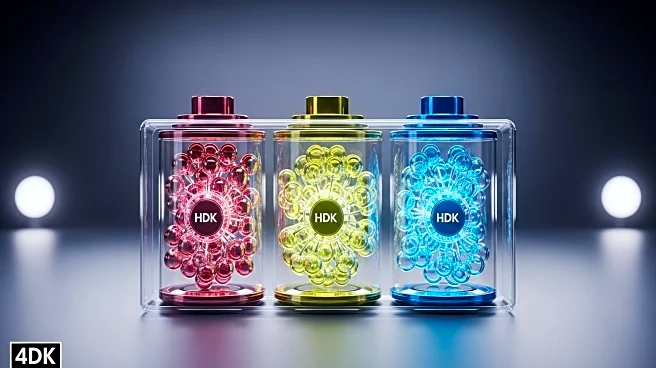What's Happening?
General Motors (GM) has announced that it will prioritize a three-chemistry battery strategy rather than focusing on solid state battery technology. Kurt Kelty, GM's vice president of battery, propulsion, and sustainability, stated that this approach is intended to reduce costs while meeting customer performance expectations. The decision comes as North American manufacturers, including GM, are not prioritizing solid state batteries, which are often seen as the next big advancement in electric vehicle (EV) technology. Solid state batteries promise higher energy density and improved safety compared to current lithium-ion batteries, but they remain expensive and challenging to produce at scale.
Why It's Important?
The decision by GM to focus on a three-chemistry battery strategy rather than solid state technology has significant implications for the EV industry in North America. By opting for a more cost-effective and currently viable solution, GM aims to make EVs more affordable and accessible to a broader market. This strategy could influence other manufacturers to adopt similar approaches, potentially delaying the widespread adoption of solid state batteries. The focus on reducing costs and improving performance aligns with the industry's goal of increasing EV adoption, which is crucial for reducing carbon emissions and meeting environmental targets.
What's Next?
As GM continues to develop its three-chemistry battery strategy, the company is likely to focus on optimizing the performance and cost-effectiveness of its current battery technologies. This could involve further research and development to enhance battery life, charging speed, and energy density. The automotive industry will be watching closely to see if GM's strategy pays off in terms of market share and consumer satisfaction. Additionally, advancements in battery technology could lead to new partnerships and collaborations within the industry, as companies seek to leverage each other's strengths in the rapidly evolving EV market.











